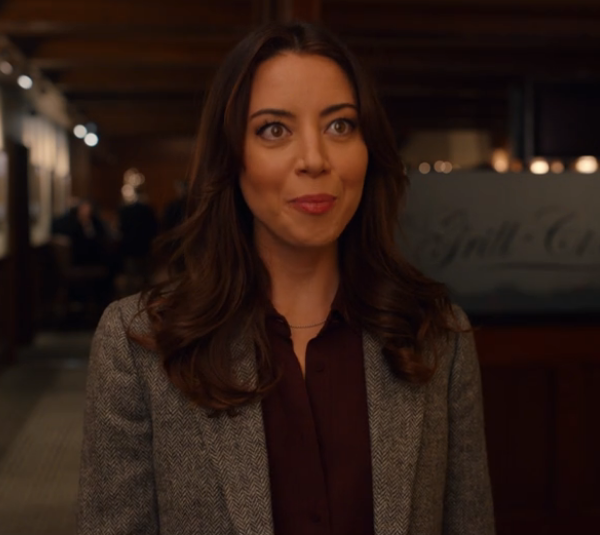How Hulu's Happiest Season Should Have Ended
It’s that time of year.
The film began production in 2020 and was impacted by the global pandemic as many of the cast and crew members tested positive for COVID-19.
The screenplay was written and directed by lesbian icon Clea Duvall, who starred in But I’m a Cheerleader and Better Call Saul. Her repertoire is extensive, including work on titles such as Girl, Interrupted starring Winona Ryder and Angelina Jolie.
But if there’s anyone who embodies post-modern gay apathy, it’s Kristen Stewart.
The plot is as cliché as it gets, but the film as a whole has a subtly satirical underbelly that psyches me out when trying to determine if the writing is lazy or ingenious. The cast is so committed to the bit that it works.
Abby Holland and Harper Caldwell have been dating almost a year. In true Hallmark fashion, Abby relates that she hates Christmas ever since her parents died. Harper invites her to spend Christmas with her family, which would be a nice gesture if they weren’t comically conservative.
To make matters worse, Abby is planning a Christmas proposal, only for Harper to admit on their way to the Caldwell's, that she lied about coming out to her family out of fear it would jeopardize her father's mayoral campaign. She asks Abby to pretend to be her straight roommate for the holiday, to which Abby reluctantly agrees.
This is red flag number 1 and 2, for each of the characters respectively. In Abby’s case, it’s bad enough that the woman she’s planning to marry would violate her trust by both lying and forcing her into a potentially dangerous situation, but it might be worse that she actually decides to go along with it.
I know this movie is pandering to straight people because in real life, there’s no way this wouldn’t have come up yet.
I don’t think anyone could actually be this clueless, as if the threat of politically platformed homophobia isn’t the first thing addressed between two queer people in a relationship as a basic safety precaution.
Here we meet Harper’s parents Ted and Tipper. Alison Brie makes her appearance as older sister Sloane, and Mary Holland as younger sister Jane.
Enter Aubrey Plaza.

At a dinner party, Abby runs into Riley, Harper's ex from high school. Honestly, I don't know how Harper is pulling these insane women. But as the movie takes a turn, I find it fitting that the first accurate portrayal of the culture is the three-way look of gay panic.
Sloane is the only straight character with any sort of gadar. After clocking Abby, Sloane's badass kids try to frame her with shoplifting by putting merchandise in her purse, leading Ted and Tipper to decide it would be best for Abby to stay away from public facing events.
We don’t get to see Kristen Stewart and Aubrey Plaza make out on screen, which had the potential to not only break the internet but strike homophobia dead in its tracks… but I digress.
At the annual Caldwell Christmas Eve party, Abby is relieved when her friend John arrives to pick her up. Harper begs her to stay and as they are about to kiss, they are caught by Sloane who prepares to expose their relationship to the family. However, come to find out, Sloane has her own secret: she and her husband, Eric, are getting a divorce.
The sisters get into a fight where they air out their dirty laundry in front of the guests. Sloane outs Harper as being a lesbian, which Harper immediately denies. Abby leaves the house, noticeably heartbroken.
This isn’t a complete indictment on the writers. Coming out is tricky to navigate. We know this, because John gives Abby (and the audience by proxy) a ten-minute lecture on the importance of forgiving a significant other who has manipulated you because it has nothing to do with their love for you.
While this film is an oversimplification rather than a premier form of entertainment as a large percentage of the LGBTQ population doesn’t receive this type of closure, this movie could potentially be a learning tool for the families of queer people.
That said, it’s no wonder all the straight critics loved it. It still raises the conversation of how media is mass-marketed to whatever demographic is most likely to engage with it. The gay community has long learned that streaming and uprating cringy content is the only way we’ll get more of it. Somehow, it still feels like we've been queerbaited.
All in all, Happiest Season’s blemishes didn’t stop it from charting as the top Hulu debut. The goal was to create a movie geared toward the family experience, and the writing didn’t push the button too far in either direction. But if lesbian representation is truly at the forefront of LGBTQ film, Hollywood still has a long way to go.
Where to Watch Happiest Season:
Happiest Season is a Hulu Original.
